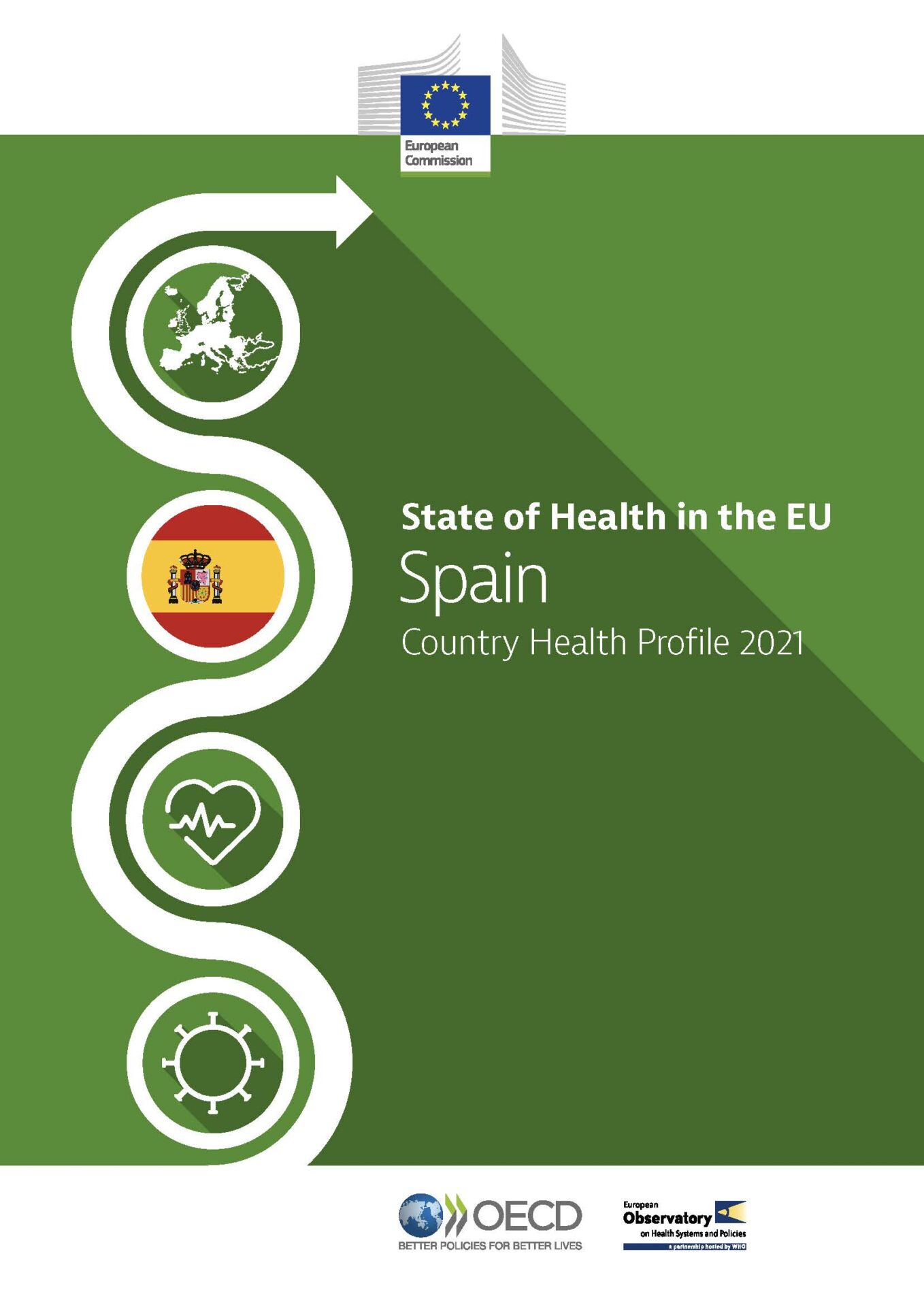Life expectancy in Spain is among the highest in Europe, but it declined significantly in 2020 due to the impact of the Covid-19 pandemic. On average, the Spanish population spends more time living in good health compared to other EU countries, but risk factors such as alcohol consumption have increased.
While the Spanish health system provides good access to high-quality care, the pandemic mobilised efforts on prevention and public health, temporarily increasing the health workforce and use of digital health. Universal health care and a strong primary care system have been key in the response to the Covid-19 pandemic.
Spain’s health status
Life expectancy in Spain in 2020 was almost two years higher than the EU average, despite a fall of 1.6 years because of the high mortality registered during the Covid-19 pandemic. Before the pandemic, life expectancy had increased steadily in Spain by more than four years between 2000 and 2019, reaching 84 years in 2019. Historically, ischaemic heart disease, stroke and cancer have been leading causes of death.
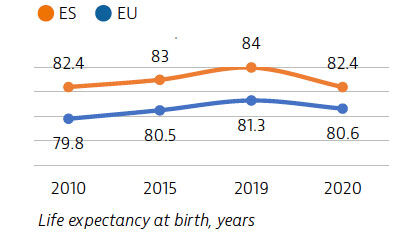
Risk factors
Risk factors for health are major drivers of mortality in Spain. While tobacco consumption has fallen over the past two decades, one in five adults still smoked daily in 2019. Alcohol consumption has increased and was slightly higher than the EU average in 2019. Some 18% of 15-year-olds were overweight or obese in 2018 – slightly below the average across EU countries.
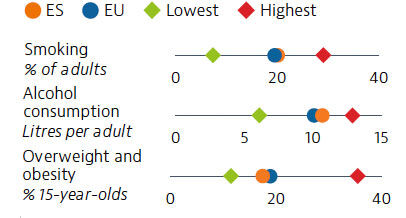
Spain’s health system
Spending on health per capita remains lower in Spain than the EU average. There is a growing gap between Spain and EU countries in total health spending, indicating slower growth over the past decade. Since 2014, per capita spending has been increasing, reaching €2,488 in 2019. Spain’s out-of-pocket payment levels are well above the EU average (at 21.8% compared to 15.4% of total health expenditure in 2019), and consist mainly of co-payments for medicines, medical devices outside hospitals and dental care.
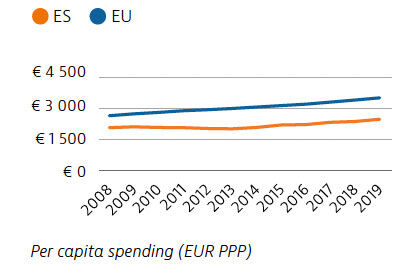
Effectiveness
Mortality rates from preventable and treatable causes are lower in Spain than the EU average, boosted by effective public health and prevention policies before the Covid-19 pandemic. However, mortality rates from lung and colon cancer remain high.
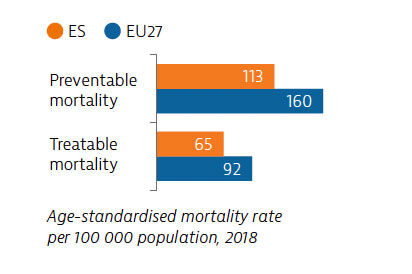
Accessibility
Access to health care is generally good in Spain. While unmet needs are very low for medical care, this is not the case for dental care. Access to health care services was disrupted during the first wave of the pandemic, but growing use of teleconsultations helped maintain access to care during the subsequent waves.
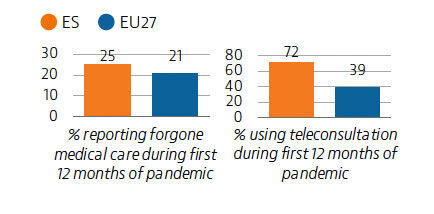
Resilience
The Covid-19 pandemic had a severe impact on Spain and specific measures were taken to coordinate response efforts. Spain continuously updated its vaccination campaign and at the end of August 2021, its vaccination rate was significantly higher than the EU average.
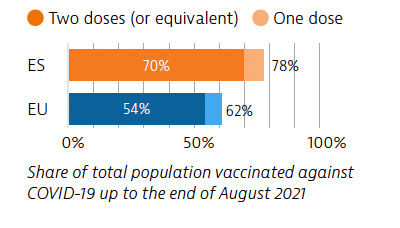
OECD/European Observatory on Health Systems and Policies (2021), Spain: Country Health Profile 2021, State of Health in the EU, OECD Publishing, Paris/European Observatory on Health Systems and Policies, Brussels.









